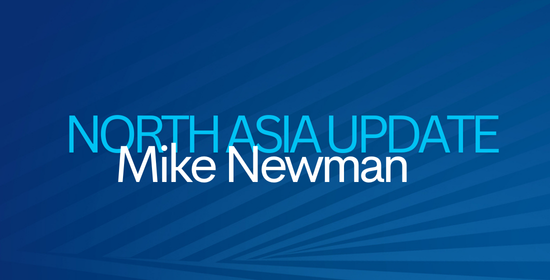HunterNet Newsletter – November 2024
A slight change to the regular newsletter format. As I have regularly been back and forth to Australia, I have added another section to focus on feedback on NSW initiatives.
NSW
Post the Queensland election, newly appointed Trade Minister Ros Bates MP is already planning to head to Japan & Korea in November, not even two months into the job.
This month, SA Minister for Trade, Investment and Veterans Affairs, Joe Szakacs MP, visited Japan and Korea.
NSW has not had any representation from the ministerial/senior bureaucratic class to North Asia since July 2022. Culturally, being conspicuous by our absence continues to be noticed by investors as a sign NSW is not fully engaged in the relationship. With the appointment of a new North Asia Trade & Investment Commissioner for North Asia, David Lawson, one hopes that changes.
Perhaps there are some green shoots as several Investment NSW Executive Directors have made the trip to China.
In my last visit to Sydney, I encouraged Bradfield Development Authority CEO Ken Morrison to take a delegation to Japan to change this perception and to take David Gainsford, Deputy Secretary for Planning to explain our approvals processes in country. Explanation of the facts on approvals processes will reverberate across all of NSW, not just Western Sydney. We have to start somewhere to change perceptions.
On the housing front this month, I arranged for the Japanese government agency, Urban Renaissance (UR), to meet with Minister Rose Jackson MP’s team regarding social housing and promoting Japanese experience, investment and technology into the system.
The Minns’ government’s new plan to change planning for $60m (suburban) and $30m (regional) developments will be received well if local councils can be bypassed. Although building another bureaucracy to oversee it will likely have the effect of more delays, especially when building/housing in NSW touches nine ministers’ portfolios. Therein lies the broader problem.
At a federal level, more Japanese & Koreans are noticing the Albanese government’s poor polling and quite receptive to the prospects of a Coalition victory which would be much more favourable to their coal/gas requirements, especially to transition. High quality coking coal being a major pillar for doing green steel (which they admit is a 20-30 year journey to do at scale).
Japan
Japan has selected a new Prime Minister. Shigeru Ishiba was reluctantly appointed to run a minority government after the long-serving Liberal Democratic Party (LDP) and its coalition partner lost its majority at the recent election he called to seek a mandate (which he didn’t get). It is unlikely that much will change but the sense is that the yen is likely to remain soft.
More hydrogen news from Japan!
Kawasaki has been designated as an ammonia/hydrogen terminal. No big surprise as it was rumoured for a long time to replace JFE Steel’s retired steel plant. It is a good sign nonetheless that Japan is moving forward on hydrogen.
Also, the government announced its new funding programs for hydrogen/ammonia support. Essentially, the government is encouraging a full supply chain to be created by consortia parties. It makes sense. Having a start to finish approach is the only way to get the industry off the ground.
The Hydrogen Society Promotion Act, outlining three types of support available for applicants:
1. Contract for Difference (CfD) for clean hydrogen or ammonia and the reference price for traditional grey hydrogen or ammonia.
2. Development Costs: Supporting FEED & EPC costs for shared infrastructure projects, including port facilities and ammonia cracking infrastructure.
3. Regulatory Procedures: Offering exemptions from certain permitting and notification requirements to accelerate projects.
Daiwa House is interested in becoming an IPP/PPA provider for 100MW+ projects in Australia. Naturally, I have spruiked the Hunter, which would also potentially play a role in helping build the Japanese consortia (as encouraged above) to make hydrogen/ammonia a reality.
Korea
There is still an expectation that Korean President Yoon will come to Australia to discuss energy security and defence before the election. Currently, his approval rating stands at 20%, up from the all-time low of 17%. His 5-year term ends in early 2027.
Japan, Korea and the US agreed to establish a Trilateral Secretariat to formalize a partnership on defence, especially post the deepening military ties between Russia and North Korea. This discussion will also extend to what is deemed aggressive actions by Chinese Coast Guard ships in territorial waters.
Japan’s Defence White Paper is a really good read to understand the regional tensions and the amount of incursions Japan faces daily. Japan’s Air Self Defence Force (JASDF) scrambled over 470x in 2023 to intercept Chinese military aircraft (p.76). https://www.mod.go.jp/en/publ/w_paper/wp2024/DOJ2024_EN_Full.pdf
Korean company SK Group was an initial proponent of decarbonisation, but it has now changed its focus toward AI. Note SK Group has a semiconductor manufacturing subsidy, SK Hynix.
Korean battery makers have taken a pounding on the back of Trump’s plans to eliminate EV subsidies. In a touch of irony, there are 15 EVs eligible for the tax break and Hyundai has no vehicles within that.
On Hyundai Motor, the company has just appointed its first foreign Global President & CEO Jose Munoz, the previous Global COO. As he ran Hyundai’s North American operations, the sense is he will have more cut through with the incoming administration.
Heard on the grapevine, other Hyundai Group companies have been quite proactive in Queensland, seeing opportunities ahead of the 2032 Olympics.
I will be in Korea in December and January for separate missions and will report from the ground in next month’s missive ahead of Christmas.







